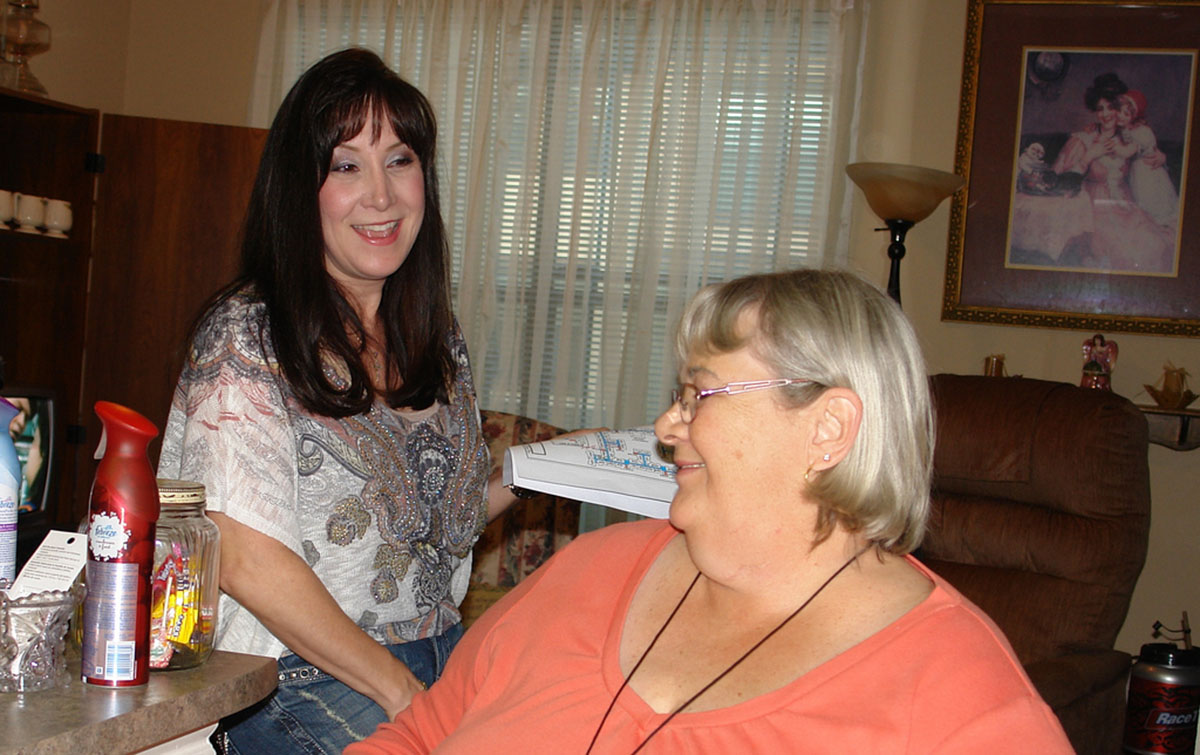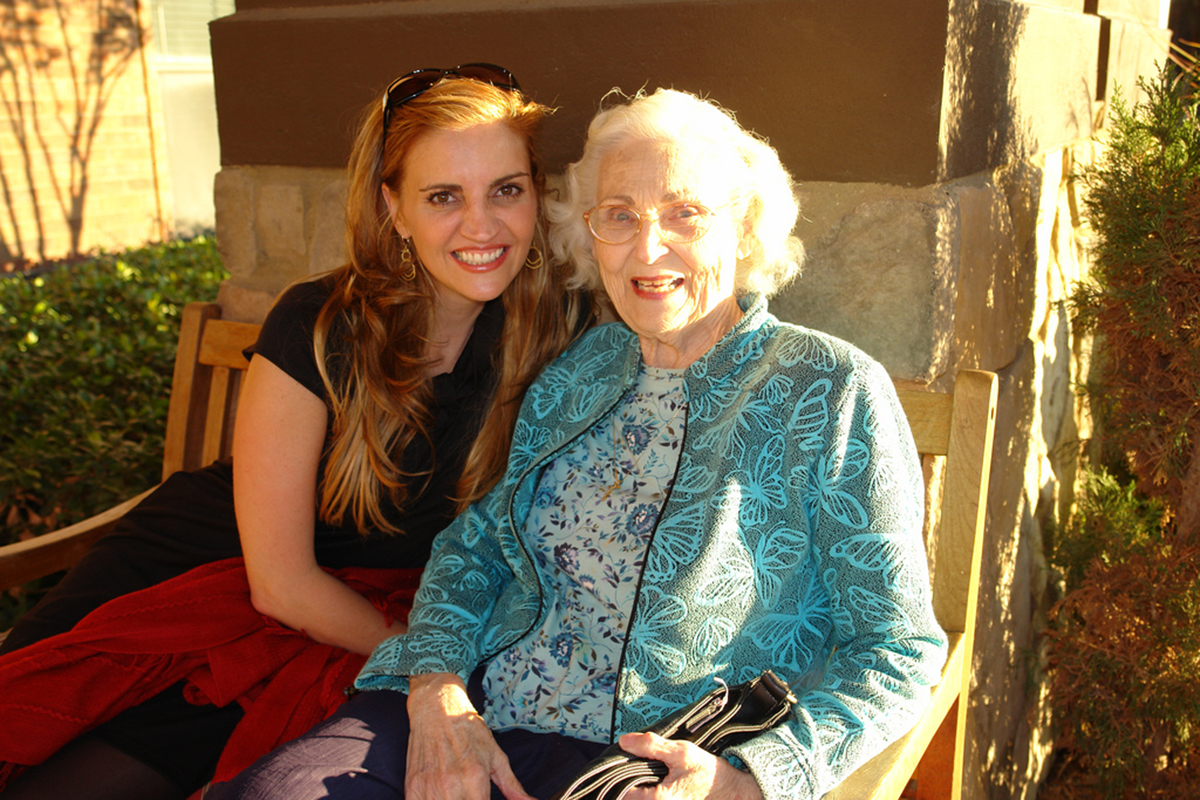When I got laid off from my job as a contruction worker (yes, I was a woman in construction), I was in my mid-forties and had no idea what to do next. It's hardly easy to find a new job at that age, and though I've always been a bit of a Jack-of-all-trades, I studied agricultural development, hardly something that makes career doors swing wide open. I had looked after my mom and dad before they passed away. While I was happy I could be there for them as much as I could, the day-to-day care they received fell on the shoulders of carers. When someone suggested I enter this field, I decided to give it a shot.
Years on, I love my job. I clean elderly people's houses, and sometimes their butts. I do their gardens, their cooking, and their shopping. As a former construction worker, I also fix their electric wiring and do their plumming. I install their computers. I massage their feet with essential oils, rub their backs, help them get dressed, organize their medications, and mend their clothes when broken.

I have seen and experienced some of the most disgusting things you can imagine — terrible bed sores, people dying from operations they should never have had at their ages, heartbreaking family relationships, people terrified of dying, and abusive caregivers. Yes, some of the aspects of my job would make some people's skins crawl, and if you're easily disgusted, a career in caring isn't for you. Most of all, though, though I do love fixing stuff and gardening, I find fulfillment in the fact that I can make a tangible difference to people's lives.
I'm not a doctor, or even a nurse, but I'm on the frontlines, with just one mission — to make people who need a bit of help live their lives with dignity and happiness. Are you considering a job in elderly care? This article covers the most important qualities people who care for others need to have.
Don't Be Condescending
Yes, some senior citizens suffer from dementia, making them forget everyday stuff that is pretty important — like eating, going to bed at night instead of in the morning, paying the bills, and taking medication. They don't all suffer from dementia though, and no caregiver should treat all older people like they do. "Have you taken your medications?", "Oh, aren't your toenails long? We should make a pedicure appointment for you!", and "Oh, you want to buy another fly swatter? I don't think so love, you've already got one!" are all things I have actually heard caregivers say to the people they are supposed to look after. This approach may work with some people in the advanced stages of dementia, but would you like it if people treated you like a baby? I sure wouldn't, and I assume you agree.
Care — But Not So Much That It Breaks You
When you work as a carer, you inevitably become an intimate part of the lives of those you care for. Some even become true friends. And if you work with elderly people, people who become quite a big part of your life die on a regular basis. It's that simple. This is one of the hardest parts of the job, and it's something you have to be able to handle.
Some people in compassionate fields become hardened by their experiences, turning them into emotionless cynics. You don't want to be one of them, because you won't be able to do the best job you can, but you also don't want your personal life, your life outside of work, to be ruled by worry for gravely ill people or sadness about those who passed away.
READ Decline And Fall: Injury Prevention For Older People
Over the years, I have learned to be fully emotionally present on the job, offering my customers whatever I can to make their lives easier, but also to lay the burdens of the job aside when I get home. When someone passes, I feel sad, but I try to simply absorb what I learned from them — and I learned a lot in this job, about people, but also myself — and to carry their memories with me in a positive way.
Skills You Need To Be A Successful Caregiver To Senior Citizens
Don't Be Disgusted By Things
Pee, poo, blood, vomit, pain, sorrow, agony, needles, depression, death wishes, boils, diabetic leg sores, mental illness, hoarding, people who steal others' cats, you'll see it all. If you really, really want to not see even one of the things on this list, get a desk job. 'Nuff said.
When things get rough, and they will, humor is often a great way to deal with things. One lady, who has Irritable Bowel Syndrome, warned me when I had a "shitty job" to do for instance — quite literally, since the stuff was all over the bathroom. Laughing it off makes things that can be embarassing to elderly people and carefivers alike so much more easy to deal with.

Communication
The people you work with are going to have different needs, and different communication skills. Some will immediately tell you what they expect from you, while others are more timid. The most powerful communication skill you have at your disposal is asking questions. Especially when it comes to people's bodies, it's very important to ask for permission before doing anything, rather than just doing things the way you think they ought to be done. At the same time, make sure to watch out for non-verbal communication like unhappy faces, angry faces, or grunts.
Also, don't let your customers cross your boundaries — any job that involves working with people is a two-way street. Some people will ask you very personal questions you don't want to answer. Some will even hit on you, while others may try to hit you. What can you do? Brush them off with a funny remark, and if that doesn't work, have a serious chat in which you make your boundaries absolutely clear.
One more thing — though keeping in touch with the relatives of the people you care for is probably not going to be part of your job description, I do this (with my customers' consent, of course). Relatives who live far away often feel left out of the loop, and can be the last to find out about hospitalizations, a decline in mobility, and things like that. Keeping them informed means they have the opportunity to come and spend time with their loved-ones during times when it matters most.
READ How To Keep An Eye On Your Family Member In A Nursing Home
Working With People You Don't Like
Sometimes it's rather difficult to bring yourself to work for someone who doesn't appreciate you, or for someone who you don't appreciate. It does happen. Some people are mean. Some are racist, sexist, or both. Some people have mental illnesses that make them act strangely. Some think you are their personal slave. Accept that there will be people you don't get on with. These people deserve help too. Sometimes, you'll be able to provide that help even though you don't like them. Sometimes, it's best if you don't work with such a person.
- Photo courtesy of Ralph Zuranski via Flickr: www.flickr.com/photos/rzuranski/6444842565
- Photo courtesy of Ralph Zuranski via Flickr: www.flickr.com/photos/rzuranski/6444826991


Your thoughts on this